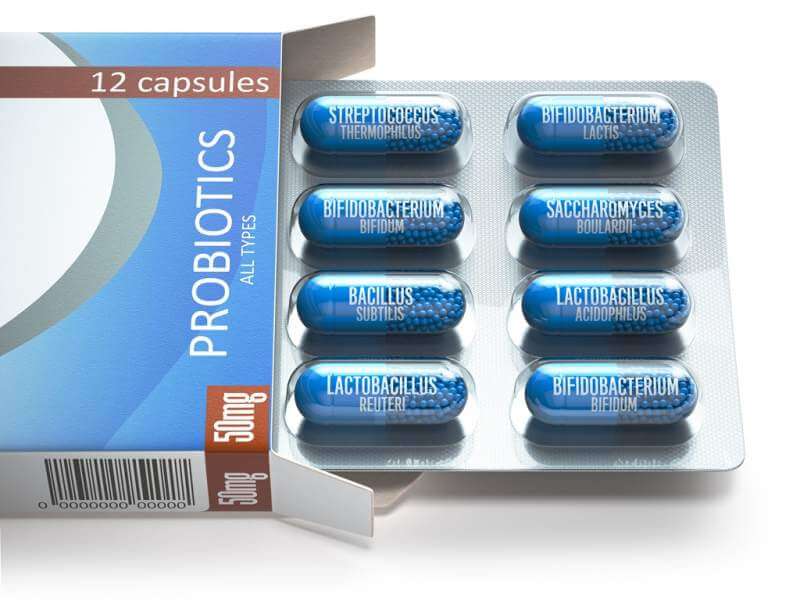With the holiday rush, family dinners, and bundling up indoors, it can be easy to slack off on eating right and staying active as the temperatures drop. The cooler months have a way of slowing the body down. This means a little extra effort may be needed to maintain the healthy lifestyle you’ve built.
A big part of this task entails ensuring your diet’s nutritional content coincides with what your body needs most. With the right food as fuel, staying active will come so much easier. Besides, staying healthy and active during the fall and winter seasons will leave you feeling that much better when spring and summer roll around.
Staying the Course During the Cooler Months
 Healthy eating and regular exercise are the staple ingredients to longevity and robust health. The benefits of exercise rely heavily on the condition of your body. This means the quality of foods you eat should take top priority regardless of the time of year.
Healthy eating and regular exercise are the staple ingredients to longevity and robust health. The benefits of exercise rely heavily on the condition of your body. This means the quality of foods you eat should take top priority regardless of the time of year.
If you’ve already incorporated the makings of a healthy lifestyle into your daily routine during the summer, modifying certain key elements can help you stay the course during the cooler months. Keep in mind that you’ll get a lot more mileage out of choosing healthy foods and exercising, as opposed to neglecting a healthy diet while exercising. Here are a few tips to help you stay the course.
7 Ways to Staying Healthy & Active
1. Eat Lots of Fruits & Vegetables

Ideally, a plant-based diet fulfills all of the body’s nutrient requirements and then some. Compared to meats, processed foods, and refined foods, plants contain the types of “living” nutrients the body needs. The body’s cells rely on an ongoing supply of enzyme-rich foods to function at its best and fight off sickness and disease. As far as the body’s protein needs go, a plant-based diet has that covered as well.
2. Take a Probiotic Supplement
 Since the fall and winter are prime cold and flu seasons, giving your immune system a boost can help you stay healthy for the duration. The best way to strengthen the immune system is by ensuring your intestinal tract contains lots of “good” bacteria. Probiotic supplements contain the types of bacteria your gut needs to fortify the immune system and protect the body from disease-ridden bacteria. Anyone who eats meat or processed foods on a regular basis can benefit from taking a probiotic supplement since these foods tend to breed “bad” bacteria.
Since the fall and winter are prime cold and flu seasons, giving your immune system a boost can help you stay healthy for the duration. The best way to strengthen the immune system is by ensuring your intestinal tract contains lots of “good” bacteria. Probiotic supplements contain the types of bacteria your gut needs to fortify the immune system and protect the body from disease-ridden bacteria. Anyone who eats meat or processed foods on a regular basis can benefit from taking a probiotic supplement since these foods tend to breed “bad” bacteria.
3. Get Proper Rest
 As inactive as sleep time may seem, the body accomplishes quite a bit when resting. The daily recommended seven to nine hours of sleep allow the body to rebuild and recover from the day’s activities. A good night’s sleep promotes alertness and a good mood, and it also helps keep your weight down by helping the body metabolize carbohydrates more efficiently.
As inactive as sleep time may seem, the body accomplishes quite a bit when resting. The daily recommended seven to nine hours of sleep allow the body to rebuild and recover from the day’s activities. A good night’s sleep promotes alertness and a good mood, and it also helps keep your weight down by helping the body metabolize carbohydrates more efficiently.
If your daily routine is hectic to the point where it’s hard to get to sleep at night, there are a couple things that might help. Going to bed at the same time each night helps train the brain to wind down at a certain time and also helps promote restful sleep. If you’re a napper, avoid napping during the day so sleep comes easier at night. Avoid drinking caffeine and alcohol no later than four hours before bedtime. You can also train the brain to associate the bedroom with sleep by not making a habit of eating or watching TV before lights out.
4. Quench Your Carb Cravings with Proteins
 Refined carbohydrate and sugar cravings seem to skyrocket during the cold season, but these tasty treats can wreak havoc on your sugar levels. Foods like cakes and cookies increase your serotonin levels, which is one of the brain’s “feel-good” chemicals. The only problem with this is that blood sugar levels spike and then drop, leaving you craving refined carbs and sugar even more.
Refined carbohydrate and sugar cravings seem to skyrocket during the cold season, but these tasty treats can wreak havoc on your sugar levels. Foods like cakes and cookies increase your serotonin levels, which is one of the brain’s “feel-good” chemicals. The only problem with this is that blood sugar levels spike and then drop, leaving you craving refined carbs and sugar even more.
Instead of feeding these carb cravings, reach for a healthy protein snack like nuts, or, better yet, a nutritious protein powder drink. A quality protein powder drink will not only curb carb cravings but also energize you for the day. Also, it doesn’t mess with your sugar levels!
5. Join an Exercise Class
 The cooler months can be the perfect time to try out a new fitness activity you’re interested in. Exercise classes, whether those are spinning, swimming, or salsa dancing, are a great way to incorporate a regular exercise routine into your weekly schedule. You’ll also reap certain key benefits when exercising in a group as opposed to on your own. It’s easier to stay motivated with a group activity. Also, the instruction part of the class helps you learn proper form, which is the best way to avoid injuries.
The cooler months can be the perfect time to try out a new fitness activity you’re interested in. Exercise classes, whether those are spinning, swimming, or salsa dancing, are a great way to incorporate a regular exercise routine into your weekly schedule. You’ll also reap certain key benefits when exercising in a group as opposed to on your own. It’s easier to stay motivated with a group activity. Also, the instruction part of the class helps you learn proper form, which is the best way to avoid injuries.
6. Go for Walks
 Of all the types of exercise to choose from, walking delivers ample health benefits without straining joints and muscles. Considering how hard it can be to stick to an exercise regimen, walking has the lowest “drop out” rate compared to more strenuous exercise routines. Walking can also fit into your daily routine nicely, such as during a lunch break or after dinner.
Of all the types of exercise to choose from, walking delivers ample health benefits without straining joints and muscles. Considering how hard it can be to stick to an exercise regimen, walking has the lowest “drop out” rate compared to more strenuous exercise routines. Walking can also fit into your daily routine nicely, such as during a lunch break or after dinner.
Just 30 minutes a day for five days a week, and you can expect to reap the following benefits from walking:
- Helps stabilize blood sugar
- Strengthens your cardiovascular system
- Helps lower cholesterol levels
- Strengthens the bones
- Enhances your mood
7. Join a Gym
 A study conducted by Iowa State University showed people with a gym membership exercise more regularly. Not only that, but gym members were more inclined to engage in both aerobic and strength-building exercises than non-gym members. Since CDC guidelines recommend aerobic and strength-building exercise as part of a healthy lifestyle, the gym makes it that much easier to ensure you’re doing both. Also, the gym offers different ways to meet these goals besides just treadmills and weight-training. Swimming, circuit training and jogging on a track work just as well.
A study conducted by Iowa State University showed people with a gym membership exercise more regularly. Not only that, but gym members were more inclined to engage in both aerobic and strength-building exercises than non-gym members. Since CDC guidelines recommend aerobic and strength-building exercise as part of a healthy lifestyle, the gym makes it that much easier to ensure you’re doing both. Also, the gym offers different ways to meet these goals besides just treadmills and weight-training. Swimming, circuit training and jogging on a track work just as well.
Above All Else … Stay Motivated
Staying motivated is half the battle when it comes to living a healthy lifestyle. You most likely have reasons for wanting to stay healthy and active during the cooler months. Keeping these reasons in mind and having a plan of action makes it easier to follow through. Before you know it, eating right and staying active will become second nature, no matter the time of year.
Author Bio:
Dr. Michael Donaldson is a chemical engineering graduate of Cornell University and now Research Director of the Hallelujah Diet. He has spent the last 18 years studying people who have experienced health benefits through diet and published scientific research on its benefits for fighting fibromyalgia, cancer, diabetes, and other ailments. His work consists of designing and coordinating epidemiologic and clinical intervention studies based on specific symptoms or diseases and focuses on the results of the Hallelujah Diet.
